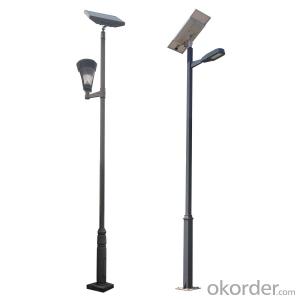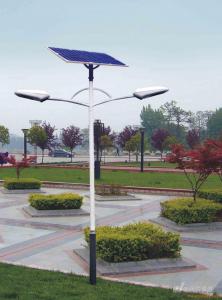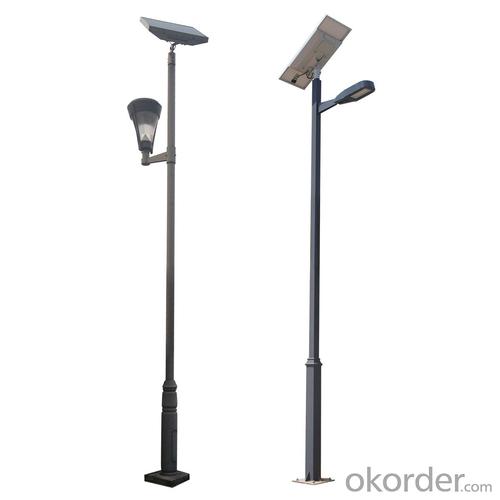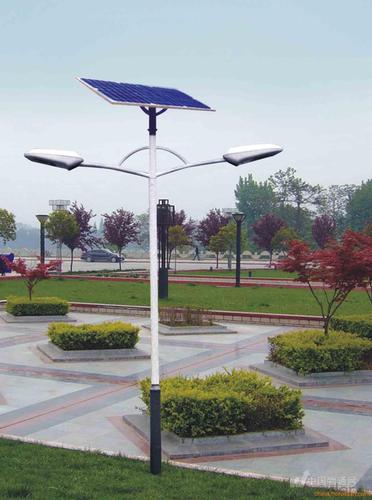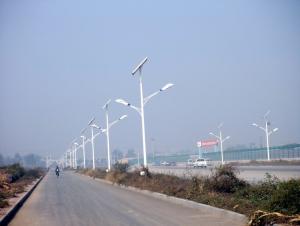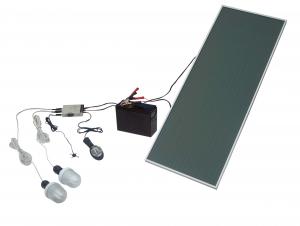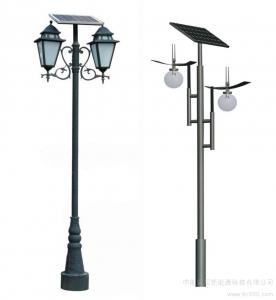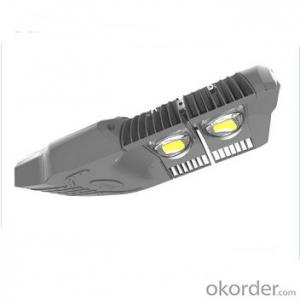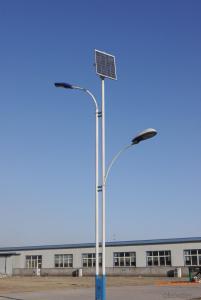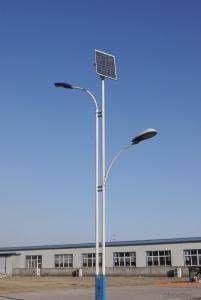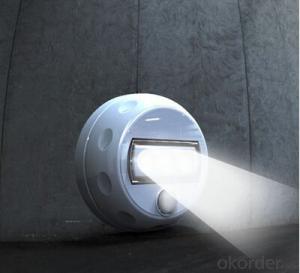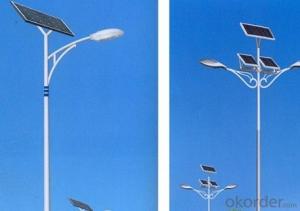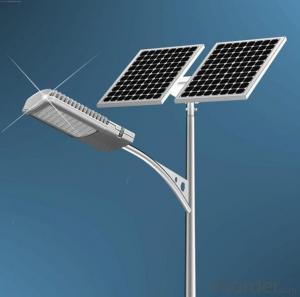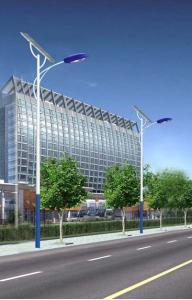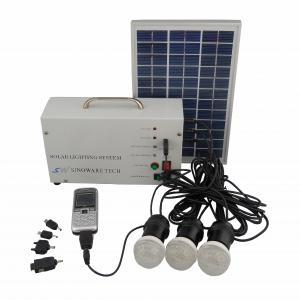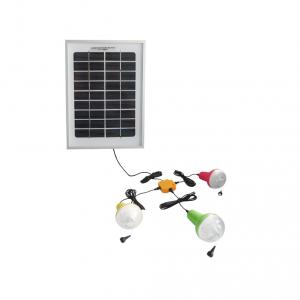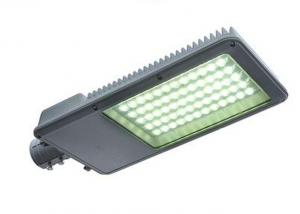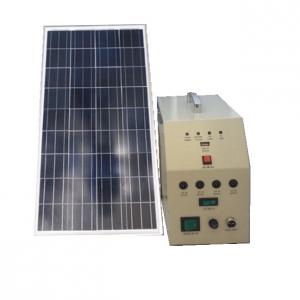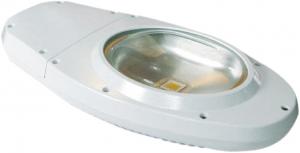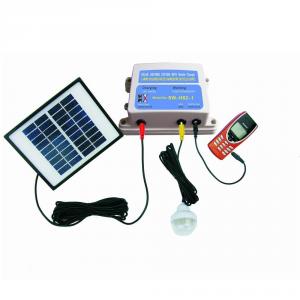Solar Light for Flagpole - Solar Street Lamps, Environmental Friendly, Cost Saving, 600
- Loading Port:
- Ningbo
- Payment Terms:
- TT OR LC
- Min Order Qty:
- 1 set
- Supply Capability:
- 5000 set/month
OKorder Service Pledge
OKorder Financial Service
You Might Also Like
Step 1 – Find area in need of street lights
The first thing to figure out is the length of road in need of street lights. This can be a small entrance road only a couple hundred of feet long to miles of streets through an area. Does the area currently have any type of lighting available? What is the reason for needing street lights in this area?
Step 2 – Find out if electric is available
Is the electrical grid already nearby or would you need to call in the power company to bring in electrical lines? If the electric needs to be brought to the area, how much is this going to cost? Depending on how far the grid electric is from the location of the needed lighting, this can be quite expensive.
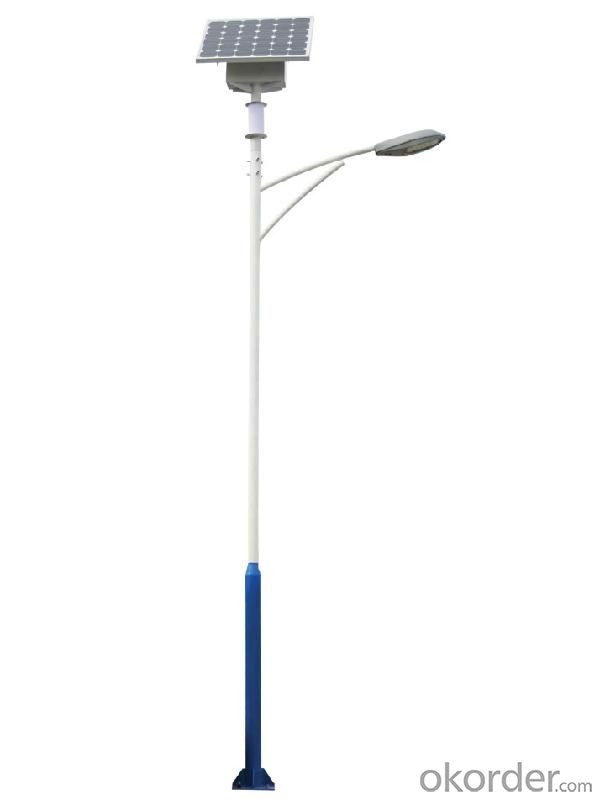
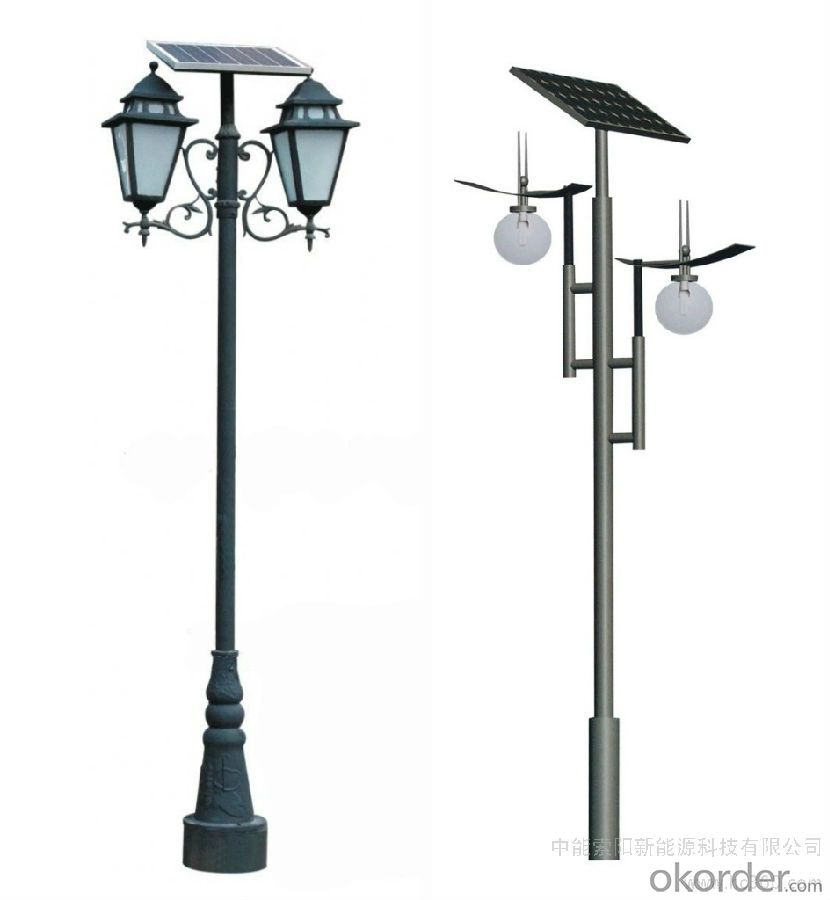
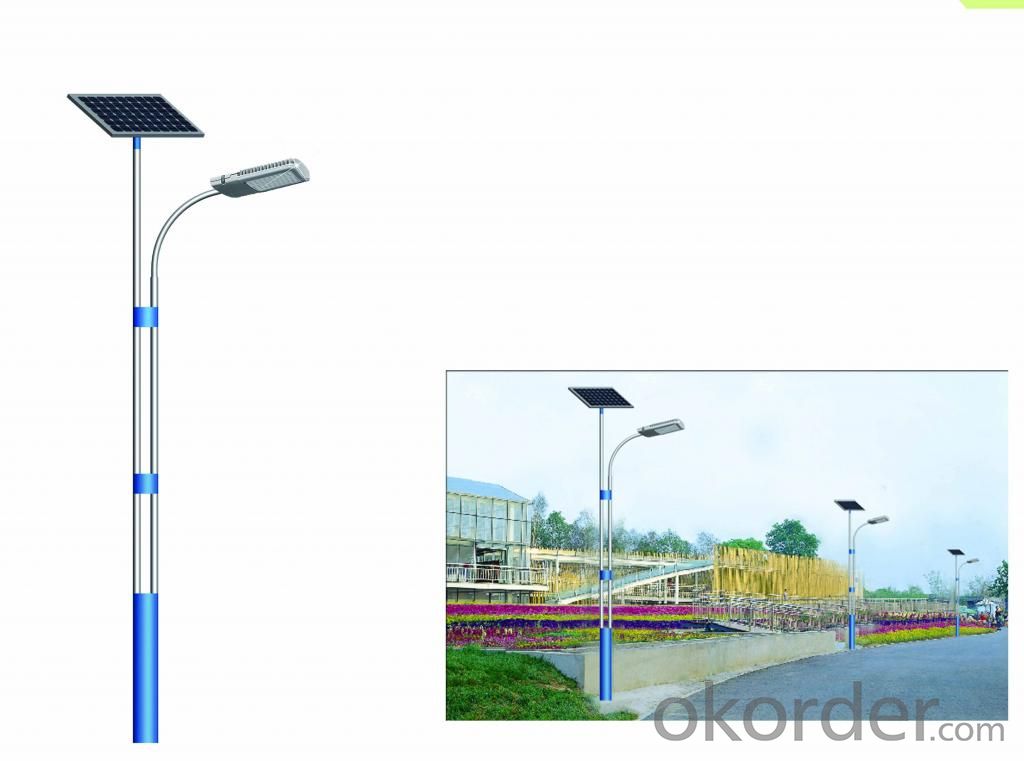
Step 3 – Determine the lighting requirements
How much lighting is needed on the street? Do the lights need to be dark sky compliant? Do the street lights need to run from dusk to dawn or for only a specified number of hours at night? Are the street lights able to dim in the middle of the night and still provide enough lighting? These questions need to be answered before you can decide on how many lights you will need to complete the project.
Step 4 – Find all alternatives
Solar power street lights are an option to traditional electrical lights. Solar street lights do not need the electrical grid to be brought in as they are self-contained units that provide their own provide the best lighting solution by using lower amounts of power, better optics, dimming features where needed, and cost less in an overall solution.
Step 5 – Contact companies for quotes
The last step after gathering the above information is to contact companies for quotes. Just like with anything else, get multiple quotes and weigh the pros and cons of every company and situation. The lowest quote is not always the best, so make sure to do your research on companies and products before you submit a purchase order.
If you take your time, do your research, and gather needed requirements, your next street lighting project will be a success. Never be afraid to ask a lot questions, they may save you time and money in the long run.
- Q: Are solar lights suitable for agricultural greenhouses?
- Yes, solar lights are suitable for agricultural greenhouses. They provide a sustainable and cost-effective lighting solution, reducing reliance on grid electricity and saving energy costs. Solar lights can be installed easily in greenhouses, harnessing sunlight during the day and illuminating the plants during the night. This ensures optimum growth conditions and extends the growing season, benefiting agricultural operations.
- Q: Do solar lights have replaceable LED bulbs?
- Yes, solar lights generally have replaceable LED bulbs.
- Q: How do I determine the appropriate number of solar lights for a specific area?
- To determine the appropriate number of solar lights for a specific area, you need to consider factors such as the size of the area, desired brightness level, and purpose of the lighting. Start by measuring the area to be illuminated and assessing the lighting requirements. Research the lumen output of the solar lights you are considering and calculate the total lumens needed for the space. Additionally, take into account the solar lights' coverage area and spacing recommendations provided by the manufacturer. By considering these factors, you can determine the appropriate number of solar lights needed to adequately light up the specific area.
- Q: Do solar lights come with a warranty?
- Yes, most solar lights come with a warranty. The duration of the warranty may vary depending on the brand and model of the solar light. It is recommended to check the product's packaging or contact the manufacturer for specific details regarding the warranty.
- Q: Are solar lights suitable for remote cabins or cottages?
- Yes, solar lights are suitable for remote cabins or cottages. They provide a sustainable and cost-effective lighting solution, especially in areas without access to electricity grids. Solar lights operate independently, relying on sunlight to charge their batteries, making them ideal for remote locations. They are easy to install, require minimal maintenance, and can provide reliable illumination throughout the night.
- Q: Can solar lights be used for sports field or stadium lighting?
- Yes, solar lights can be used for sports field or stadium lighting. They are a viable and eco-friendly option as they harness energy from the sun. Solar lights can provide sufficient illumination for outdoor sports activities and can be easily installed in these areas. However, the number of solar lights required and their positioning would depend on the size and specific lighting needs of the sports field or stadium.
- Q: Are solar lights suitable for remote research stations or camps?
- Yes, solar lights are highly suitable for remote research stations or camps. They provide a reliable and renewable source of energy, eliminating the need for traditional electricity connections in remote areas. Solar lights are easy to install, require minimal maintenance, and can operate for extended periods without access to the grid. They are environmentally friendly and cost-effective, making them an ideal choice for illuminating remote research stations or camps.
- Q: Can solar lights be used for street and road signs?
- Street and road signs can indeed utilize solar lights. These lights serve as a sustainable and cost-effective alternative to traditional electric lighting systems. By harnessing sunlight through photovoltaic (PV) panels, solar lights convert it into electricity, which is then stored in batteries for use during the night. Equipped with light-emitting diodes (LEDs), these lights provide bright and long-lasting illumination. When it comes to installation, solar lights are highly versatile and can be easily mounted on street and road signs. The best part is that they don't require any electrical wiring or connection to the power grid, making setup quick and convenient. Moreover, solar lights operate independently of the grid, ensuring uninterrupted functionality even during power outages. Furthermore, solar lights offer a range of advantages for street and road signs. They are energy-efficient, utilizing renewable solar power instead of relying on fossil fuels. This not only reduces greenhouse gas emissions but also contributes to environmental sustainability. Additionally, solar lights come with automated features like dusk-to-dawn sensors, enabling them to automatically turn on and off based on ambient light levels. This ensures optimal illumination while conserving energy. Maintenance requirements for solar lights used in street and road signs are minimal. Frequent bulb replacements and extensive upkeep are unnecessary. PV panels have a long lifespan, lasting for decades, and battery replacements may only be required after several years. Consequently, solar lights prove to be a cost-effective lighting solution in the long run, reducing operational and maintenance expenses. In conclusion, solar lights are a suitable and efficient option for illuminating street and road signs. With their sustainable and reliable performance, they offer a practical and environmentally friendly lighting solution for outdoor signage.
- Q: Can solar lights be left on overnight?
- Yes, solar lights can be left on overnight. Solar lights are designed to collect and store energy from the sun during the day, which is then used to power the lights at night. Most solar lights have a built-in sensor that automatically turns the lights on at dusk and off at dawn, ensuring they only operate when needed. Leaving solar lights on overnight does not consume any additional energy since they rely solely on the stored solar power. However, it's important to note that the duration of the light may vary depending on the amount of sunlight received during the day.
- Q: Can solar lights be used for outdoor concerts?
- Yes, solar lights can definitely be used for outdoor concerts. They are a great alternative to traditional lighting options as they are energy-efficient, environmentally friendly, and do not require electrical outlets. Solar lights can effectively illuminate concert venues, stages, walkways, and seating areas, enhancing the overall experience while minimizing energy consumption.
Send your message to us
Solar Light for Flagpole - Solar Street Lamps, Environmental Friendly, Cost Saving, 600
- Loading Port:
- Ningbo
- Payment Terms:
- TT OR LC
- Min Order Qty:
- 1 set
- Supply Capability:
- 5000 set/month
OKorder Service Pledge
OKorder Financial Service
Similar products
Hot products
Hot Searches
Related keywords
